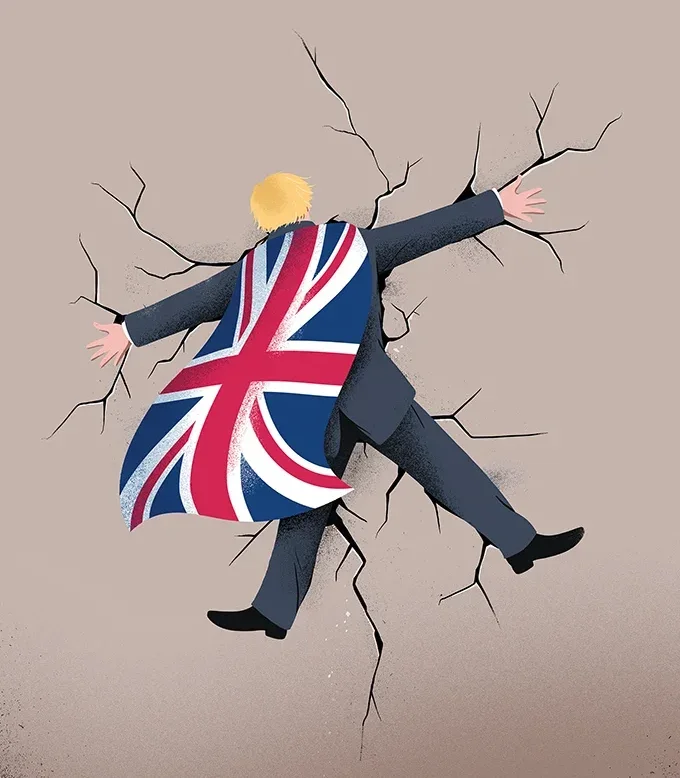
Boris Johnson’s recent political woes are often contrasted with his earlier good fortune but it is easy to overstate his past popularity. Indeed, an inconvenient truth is that when Johnson began his premiership more voters disliked than liked him. The Brexit wars had polarised the country and the Prime Minister could no longer try to be all things to all people.
After entering Downing Street in July 2019 Johnson’s ratings were far worse than the initial numbers for Theresa May, David Cameron, Gordon Brown and Tony Blair. Even Jeremy Corbyn started his Labour leadership with better ratings than his party. This, however, didn’t stop Johnson’s party trouncing Corbyn at the election in December 2019.
The polling bounce enjoyed by Johnson as the nation rallied to his government’s cause in the opening months of the coronavirus pandemic doesn’t change the narrative because the Prime Minister’s approval rating was soon in negative territory once more. The underlying trend is that less than half of the public like Johnson. At present, he is recording some of the worst poll ratings yet for a prime minister. Gordon Brown lost the 2010 general election with better numbers than those currently recorded by Johnson.
No prime minister has yet recovered from numbers quite like these but in an era of voter volatility, where tribal loyalties matter less than they did at previous general elections, I wonder if old conventions are really as important as they used to be. And while it is interesting to know that Johnson has never been truly popular as prime minister, I’d regard it as more interesting to accept, in truth, that it doesn’t really matter.
Johnson isn’t popular because he doesn’t need to be. To win an election in Britain you don't need your leader to have majority approval across the country. Sure, it can help; it can dampen the enthusiasm of your opponent’s base if your leader is not as toxic as they would like. But what matters most of all for politicians is simply to be liked by the right people in the right places: you need plurality approval in the seats that matter.
What helped the Tories put a scythe through Labour’s heartlands was that Johnson, while disliked nationally, was more popular in the marginals where it mattered most.
On economic competence, the Conservatives led Labour, as they did on Brexit, the issue that motivated voters most. And on issues of personality and leadership, Johnson led Corbyn – doubly so in the election battlegrounds.
The lesson of Boris Johnson, as we write – prematurely or pertinently – his obituary, is this: you don't need to be popular in a first-past-the-post democracy. Johnson never has been. You just need to be more popular than the other guy.